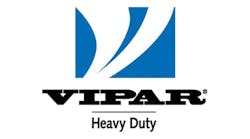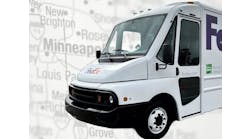The U.S. House Appropriations Committee has released its fiscal year 2025 funding bill from the Transportation, Housing, Urban Development, and Related Agencies Subcommittee.
The subcommittee’s FY25 T-HUD funding bill allocates $90.4 billion for all relevant agencies.
Currently, the bill has several noteworthy sections for the trucking industry. It would block speed limiter requirements, congestion toll programs, ELDs for livestock carriers, and much more.
What is in the current bill?
The current FY25 T-HUD funding bill includes significant constraints for the Department of Transportation and its Federal Motor Carrier Safety Administration. It prohibits many regulatory requirements that could otherwise harm fleets.
Below are takeaways from some of the bill’s most noteworthy sections. Spanning 210 pages, the bill:
- Dedicates $200 million to support truck parking availability.
- Bars requiring electronic logging devices for commercial vehicles transporting livestock or insects.
- Prohibits speed limiter requirements for vehicles with a gross vehicle weight of more than 26,000 pounds.
- Blocks congestion toll programs, like the one planned by New York City.
- Bars agencies from requiring, as a condition for participation in the Safe Driver Apprenticeship Pilot Program, the use of inward-facing cameras for motor carriers to register an apprenticeship program with the Department of Labor.
- Blocks waivers that would support California and Washington meal and rest break rules.
- Prohibits implementation of the transportation greenhouse gas emissions performance measure rule, which would require state DOTs and metropolitan planning organizations to meet emissions reductions.
- Reduces funding for DOT grant programs by over $2 billion, bringing funding 36% below 2024’s funding level.
Trucking industry responses
The American Trucking Associations and Owner-Operator Independent Drivers Association both voice support for the bill’s truck parking funding.
“The severe shortage of truck parking places an enormous burden on truck drivers, who often don’t know if they will be able to find a safe place to sleep when they finish their shift,” Chris Spear, ATA president and CEO, said. “This significant investment to expand parking capacity would help alleviate stress on truck drivers, move freight more efficiently, and make the roadways safer for all motorists.”
In addition to parking funding, OOIDA’s president also supports the bill’s prohibition on speed limiter mandates and livestock hauler ELD mandates.
“OOIDA and the 150,000 small-business truck drivers we represent appreciate House appropriators for prioritizing key issues in their spending bill related to truck parking expansion, a dangerous federal speed limiter mandate, and commonsense flexibility for livestock haulers,” Todd Spencer, OOIDA president, said.
What’s next?
The bill is an important step for the 2025 transportation appropriations process; however, it is not nearly in its final state. Members of the Appropriations Committee still have an opportunity to influence any aspect of the bill.
The Appropriations Committee will host a mark-up session for the bill on June 27, during which its members will offer amendments and vote on any changes. There will then be a full vote by the committee on the amended appropriations bill on July 8.









